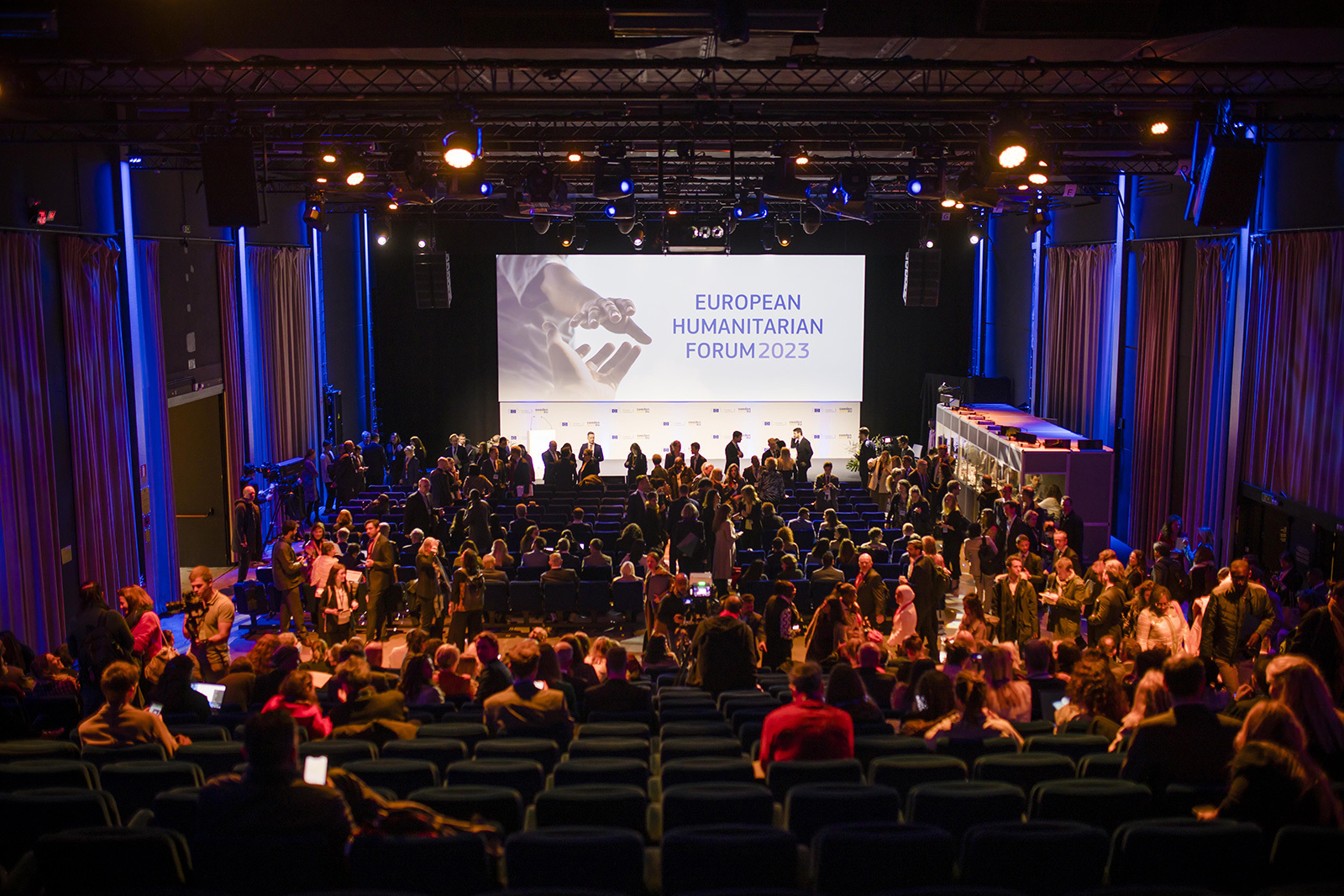Panel sessions
The EHF 2024 panel sessions will consist of moderated discussions among the wider humanitarian- development community, including EU institutions, EU Member States, third countries, partner organisations, local humanitarian actors, UN agencies, the Red Cross/Red Crescent family and academics.
Humanitarian Talks
Humanitarian Talks provide a space for discussion running in parallel with the EHF panels and an opportunity for focused exchange on concrete deliverables as well as on more specific humanitarian issues and crises that will not be addressed in the EHF24 panel sessions.
Humanitarian Talks complement the EHF programme with hands-on discussions, which reinforce the
“concrete delivery” aspect of the Forum. Proposed and led by partners and Member States, they offer an
alternative platform for humanitarian stakeholders to contribute and thematically complement the core
agenda of the event.
The Talks will showcase initiatives and discussions driven by partners, Member States and practitioners.
Recorded Humanitarian Talk, Organised by : Plan International
During humanitarian crises, persons with disabilities and other specific groups are not benefiting from relief efforts equally. Among others, the environmental, institutional, and attitudinal barriers prevent them from participating and accessing humanitarian assistance. It is therefore essential to raise awareness, develop professional capacities, and enhance response capacities for inclusive humanitarian programming and coordination both on local and global level.
This panel would focus on how neglected, forgotten, and underfinanced crises’ contexts require both more specific targeting of those households most at risk, as well as addressing underlying risk factors and/or mitigating them. Through looking at a protracted, underfinanced crisis such as South Sudan, we will discuss how reduced or redirected funding often leads to reduced effort to reach those at heightened risk, as well as how redirected funding or targeting areas affect services and how this impacts marginalised groups. It will also look at how financing for capacity development or technical support around the operationalization of the IASC Guidelines on Inclusion of Persons with Disabilities in Humanitarian Action is constrained, as well as how this impacts or slows localisation.
As well, the panel will discuss what opportunities exist to strengthen the capacity of local actors and persons with disabilities to be empowered actors for change. The panel will take an intersectional lens, looking at women, girls, men and boys of all age groups, as well as other groups at risk of marginalization.
This panel will be moderated by HI and EDF and include speakers from World Food Programme; University of Bochum, Institute for Peace, Law of armed conflict; Diakonia, International Humanitarian Law Center; the South Sudan Association of the Visually Impaired and OCHA South Sudan .
Session organised by:
- Handicap International/Humanity & Inclusion (Federation Handicap International)

